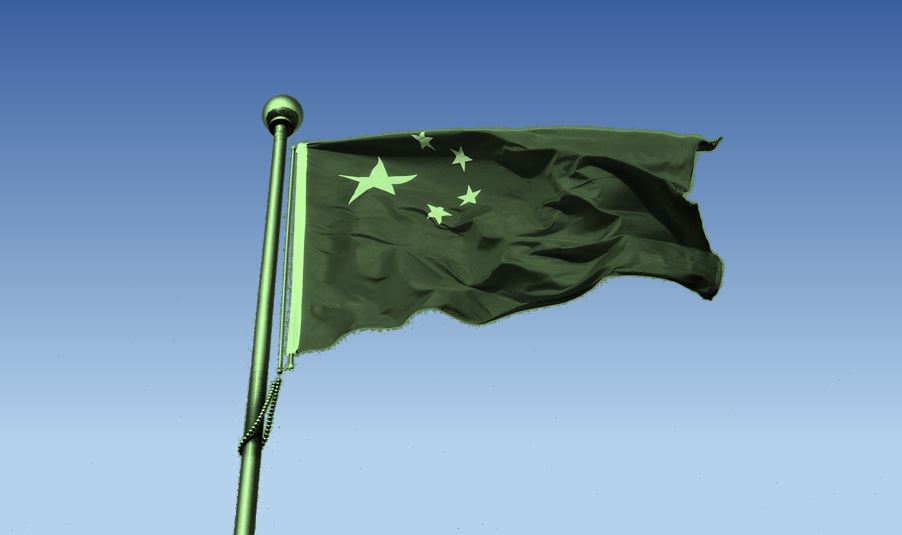Bishop and Westerman have also raised similar concerns about the relationship between the Natural Resources Defense Council and China’s Communist Party. It’s been widely reported that China uses financial incentives for third party groups like think tanks, universities and non-profits in exchange for promoting a more pro-Chinese viewpoint.
Elena Connolly
Congress Raises New Inquiry Of Relationships Between Environmental Groups And Foreign Actors
The Energy and Natural Resources Committee is raising new questions about the relationship between non-profit environmental groups and foreign entities in influencing U.S. policy.
This week, Chairman Rob Bishop (R-Utah) and Oversight and Investigations Subcommittee Chairman Bruce Westerman (R-Ark.) sent a letter to Earthjustice President Abigail Dillen requesting additional documentation and information regarding the group’s relationship with foreign actors in Japan. The inquiry relates to Earthjustice’s alleged efforts to thwart plans by the U.S. Department of Defense to move the location of a military base on Okinawa.
“Foreign members of the anti-base coalition represented by Earthjustice appear to have already engaged in extensive political activity within the United States, including lobbying government officials and holding media events designed to influence public opinion,” Bishop and Westerman wrote.
The Committee also sent a letter to the Center for Biological Diversity (CBD) in June asking for similar background on their connections to foreign government officials and actors who are against the U.S. military presence on the island. Earthjustice is providing legal representation to CBD and a coalition of Japanese activists in their campaign to stop the base relocation.
Discussions to move the base to a more sparsely populated area began in the mid-1990s. In 2003, Earthjustice filed suit to prevent the building of the new base, as they alleged construction would “negatively impact habitat for the dugong, a marine mammal.”
“Earthjustice claimed that by virtue of the dugong’s cultural significance under Japanese law, it was ‘equivalent’ to being listed in the U.S. National Register of Historic Places, and therefore protected the species under the NHPA,” notes Bishop and Westerman’s letter.
In August, a federal district court ruled in favor of the Department of Defense, concluding that it was “unlikely” that the relocation would harm the dugong. However, an attorney for Earthjustice intimated that the group may appeal the ruling or continue to “block, restrict, or delay” the move.
Bishop and Westerman cite several instances of the coalition attempting to influence public opinion and engaging in political activity in the U.S. In one instance, a foreign delegation met with representatives from a member of the U.S. Senate and House. In another, the delegation also traveled to Washington, D.C., and met with lawmakers and trade organizations.
Bishop’s letter also raises the question of compliance with the Foreign Agents Registration Act (FARA), which requires groups or persons who are acting “at the…request…of a foreign principal” or whose actions are “supervised, directed, controlled, financed, or subsidized” by a foreign principal to register with the Department of Justice.
“The purpose of FARA is to ensure that the U.S. Government and the people of the United States are informed of the source of information (propaganda) and the identity of persons attempting to influence U.S. public opinion, policy, and laws,” cites the letter.
While FARA provides an exception for domestic attorneys representing foreign groups in legal proceedings, that does not apply to activities outside the courtroom.
This is not the first inquiry made into the idea of foreign actors utilizing U.S. based environmental groups to influence policy.
Bishop and Westerman have also raised similar concerns about the relationship between the Natural Resources Defense Council and China’s Communist Party. It’s been widely reported that China uses financial incentives for third party groups like think tanks, universities and non-profits in exchange for promoting a more pro-Chinese viewpoint.
Free Range Report
Thank you for reading our latest report, but before you go…
Our loyalty is to the truth and to YOU, our readers!
We respect your reading experience, and have refrained from putting up a paywall and obnoxious advertisements, which means that we get by on small donations from people like you. We’re not asking for much, but any amount that you can give goes a long way to securing a better future for the people who make America great.
[paypal_donation_button]
For as little as $1 you can support Free Range Report, and it takes only a moment.



